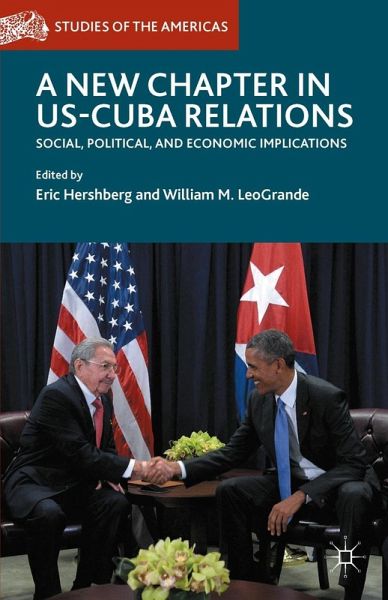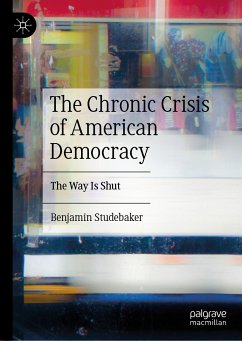
A New Chapter in US-Cuba Relations (eBook, PDF)
Social, Political, and Economic Implications
Redaktion: Hershberg, Eric; Leogrande, William M.
Versandkostenfrei!
Sofort per Download lieferbar
72,95 €
inkl. MwSt.
Weitere Ausgaben:

PAYBACK Punkte
36 °P sammeln!
This book explores the diverse consequences of Presidents Obama and Castro brokering a rapprochement between the United States and Cuba after more than half a century of estrangement. Economic, political, social, and cultural dynamics are analyzed in accessible fashion by leading experts from Cuba, the United States, Europe, and Latin America. What opportunities arise through the opening of diplomatic relations, and what issues may be obstacles to normalization? What are the implications for the Cuban economy, for its political system, and for ties with members of the Cuban diaspora? What are ...
This book explores the diverse consequences of Presidents Obama and Castro brokering a rapprochement between the United States and Cuba after more than half a century of estrangement. Economic, political, social, and cultural dynamics are analyzed in accessible fashion by leading experts from Cuba, the United States, Europe, and Latin America. What opportunities arise through the opening of diplomatic relations, and what issues may be obstacles to normalization? What are the implications for the Cuban economy, for its political system, and for ties with members of the Cuban diaspora? What are the implications for US relations elsewhere in Latin America? This up-to-date account addresses these and other questions about this new direction in US-Cuban relations.
Dieser Download kann aus rechtlichen Gründen nur mit Rechnungsadresse in A, B, BG, CY, CZ, D, DK, EW, E, FIN, F, GR, HR, H, IRL, I, LT, L, LR, M, NL, PL, P, R, S, SLO, SK ausgeliefert werden.












